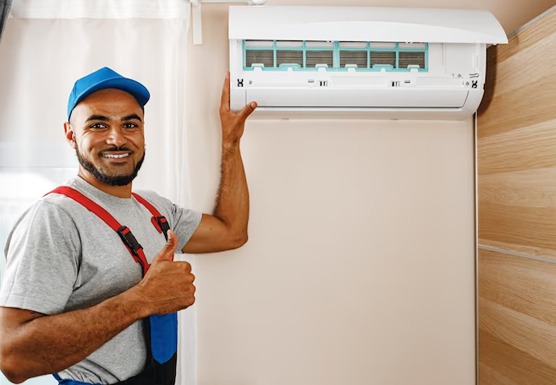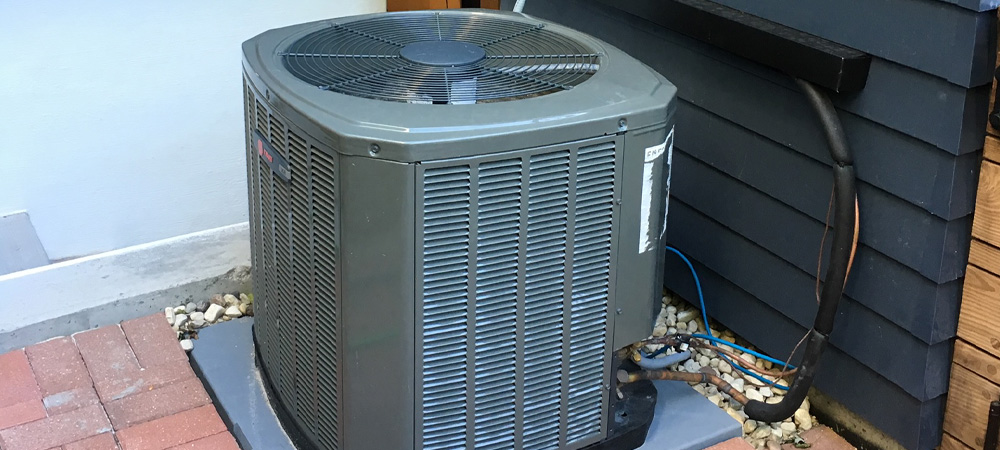The 6-Minute Rule for Ac Repair
The 6-Minute Rule for Ac Repair
Blog Article
Fix Ac System: Expert Cooling System Remediation Ensures Your Home Stays Comfy Throughout The Hottest Days
Common A/c Issues
Have you ever felt that unexpected rush of warm air just when you anticipated a cool breeze? It's frustrating, isn't it? Lots of homeowners face this dilemma, frequently unaware of what hides underneath the surface of their air conditioning system. Let's decipher the secret behind a few of the most frequent concerns that demand prompt a/c repair work.
Why Won't My Air Conditioning Cool Properly?
When your air conditioner unit blows lukewarm air rather of a revitalizing chill, it's a clear indication something's off. A stopped up filter or low refrigerant get more info levels typically play the bad guy here. Imagine attempting to breathe through a headscarf on a hot day-- that's what an unclean filter does to your system. Ever wondered why your energy bills spike when the cooling drops? That's your air conditioner struggling more difficult to compensate for ineffectiveness.
Odd Noises and What They Mean
Clicking, buzzing, or rattling noises aren't simply noises-- they're weeps for aid. A loose belt or a failing motor might be the offenders. One property owner stated how a consistent grinding noise ended up being a worn-out compressor, saving them from a total breakdown by acting rapidly.
Typical Issues at a Glimpse
| Symptom | Likely Cause | Quick Repair |
|---|---|---|
| Warm Air | Low refrigerant or dirty filter | Change filter, check refrigerant levels |
| Water Leaks | Blocked drain line or frozen coils | Clear drain line, thaw coils |
| Uncommon Noises | Loose parts or motor problems | Tighten parts, inspect motor |
Is Your air conditioning Biking On and Off?
Brief biking is more than an inconvenience; it can drastically decrease your system's life-span. This could signal an extra-large unit or a thermostat problem. Have you observed your system switching on and off like a flickering light? Don't disregard it. It's a subtle hint prompting you to contact the specialists before it turns into an expensive disaster.
- Filthy filters and coils cause airflow problems.
- Thermostat malfunctions result in inconsistent temperature levels.
- Electrical issues can stop your a/c from starting.
Important Tools for Cooling Repair

Ever stood in front of a sprawling air conditioning system questioning which tool will unlock the mystery? The right instruments can make all the distinction in between a quick fix and a limitless afternoon of disappointment. For example, a digital manifold gauge set isn't just an elegant gizmo; it's the investigator's magnifying glass worldwide of refrigerant pressure. Its precision assists identify leakages or imbalances that a casual glance might miss.
When dealing with persistent or rusted elements, a quality tubing cutter deserves its weight in gold. It slices through copper pipes cleanly, avoiding damage that might lead to expensive leakages. Have you ever attempted to flex copper tubing by hand only to end up with kinks? Avoiding this requires specialized flexing tools developed to maintain the pipe's stability.
Tools That Professionals Swear By
- Air pump: Important for eliminating wetness and air from the system before recharging refrigerant, guaranteeing ideal effectiveness.
- Leak detector: A must-have for catching undetectable refrigerant leakages that can cause system ineffectiveness.
- Multimeter: Beyond determining voltage, it's vital for identifying electrical faults within the AC's control system.
- Fin comb: A small yet magnificent tool that corrects bent condenser fins, boosting air flow and efficiency.
Pro Tips for Using Cooling Repair Work Tools
- Always confirm your gauge readings versus manufacturer specifications; even experienced techs confirm to prevent expensive misdiagnoses.
- When using an air pump, make sure all valves and pipes are airtight; a small leak can destroy the evacuation process.
- Clean your fin comb routinely. Dust and gunk can cause it to snag, damaging delicate fins even more.
In the heat of summer season, a malfunctioning compressor or clogged up filter can feel like a ticking time bomb. However equipped with the right tools and know-how, the repair becomes less of an ordeal and more of a satisfying puzzle resolved. Isn't it curious how a well-calibrated gauge or an easy leak detector can change the whole outcome?
Step-by-Step Repair Work Process
Ever discovered how your air conditioning unit starts to sputter, barely whispering the cool breeze it when delivered? The first relocation is a thorough medical diagnosis-- due to the fact that thinking just lose time and resources. You may begin by checking the thermostat settings, however often the genuine offender lurks much deeper.
1. Preliminary Inspection and Diagnostic

Begin by powering off the system to prevent shocks. Open the gain access to panels and aesthetically inspect for charred wires, stopped up filters, or ice accumulation. A typical oversight is overlooking the condenser coils; dust and dirt here can choke efficiency. Utilize a multimeter to check electrical elements and verify if the compressor is getting power.
2. Identifying Refrigerant Issues
Does the system blow warm air? That's typically a sign of low refrigerant levels or leakages. Experts use a manifold gauge set to measure pressure properly. Remember, overcharging or undercharging the system can trigger permanent damage-- exact measurement is crucial.
3. Cleaning and Element Replacement
Sometimes, a simple coil cleansing restores the system. Other times, it requires swapping out capacitors, contactors, or fan motors. Replacing these parts involves careful disassembly and reassembly; avoiding steps can result in more breakdowns.
4. System Screening and Calibration
Once repairs are made, switch the system back on and observe its habits. Procedure the temperature drop throughout the evaporator coil-- it ought to be approximately 15-20 ° F. If not, recalibrate the thermostat or look for airflow obstructions.
Specialist Tips
Air Conditioning Repair Services [:location]Air Conditioning Repair [:location]
Air Conditioning Repair [:location]
Air Conditioning Check [:location]
Heat Air Conditioning Repair [:location]
- Avoid running the compressor without refrigerant-- this burns out the motor quickly.
- Use a UV color to locate evasive leakages; they're typically concealed in hard-to-reach areas.
- Never neglect the drain line-- blockages here can trigger water damage and system failure.
- Wear insulated gloves when handling capacitors; they keep charge and can deliver a nasty shock.
Defending Against Abrupt Breakdowns
Have you ever wondered why your air conditioner sputters to a halt right at the peak of summer? The fact is, ignoring regular upkeep frequently welcomes unforeseen failures. Dust, debris, and damaged elements wage a silent war inside your system. Preventive upkeep is the trump card-- catching minor issues before they spiral out of control.
Professional Tips for Keeping Your Air Conditioning in Leading Shape
- Tidy or change filters regular monthly: A clogged filter chokes airflow, forcing the system to work overtime and accelerating wear.
- Check coil fins: Bent fins limit air passage, similar to a traffic congestion in your cooling system. Use a fin comb to correct them carefully.
- Inspect refrigerant levels: Low refrigerant can trigger the compressor to overheat, a precursor to pricey repair work.
- Clear the condensate drain: Clogs here can lead to water damage and mold growth, a concealed culprit behind remaining smells.
- Examine electrical connections: Loose wiring or rusty terminals frequently stimulate periodic failures, a subtle caution indication.
When Was the Last Time You Listened to Your a/c?
That faint rattling or uncommon hum may seem insignificant, but it's a precursor to larger mechanical problems. One summertime, a client pointed out a soft buzzing sound. A fast evaluation exposed a loose fan blade-- simple to repair, yet left ignored, it could have shattered the motor. Moments like these underscore the worth of regular checks.
Quick Checklist for Seasonal Prep
| Action | Frequency | Why It Matters |
|---|---|---|
| Filter cleaning/replacement | Every 30 days | Maintains air flow and efficiency |
| Coil and fin evaluation | Two times a year | Prevents air flow constraints |
| Refrigerant level check | Yearly | Ensures proper cooling capability |
| Drain line cleaning | Every 6 months | Avoids water damage and mold |
| Electrical system examination | Every year | Avoids abrupt shutdowns |
Pro Pointer: Beyond the Essentials
Did you understand that gently lubing the fan motor bearings every year can extend their life-span? It's a detail frequently overlooked however vital. Also, shading your outdoor unit from direct sunlight can decrease the compressor's work, discreetly improving longevity. Keep in mind, the health of your a/c unit is a reflection of the attention you offer it before it screams for aid.
Report this page